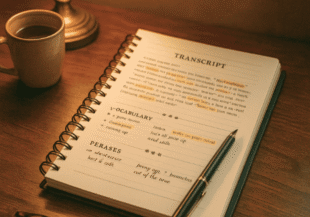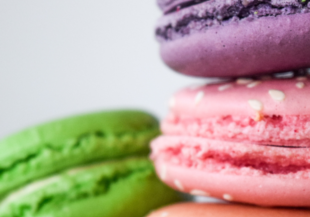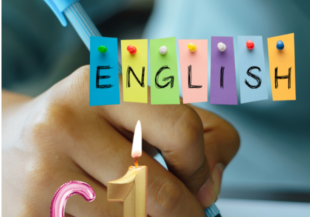(***Versión Español – Desplácese hacia abajo para ver la versión en inglés.***)
¿Alguna vez te has preguntado por qué algunos británicos dicen «¡blimey, guv’nor!» mientras que otros murmuran «rather splendid, old chap» mientras toman una taza de té?
Bienvenid@ al maravilloso y diverso mundo del inglés británico, donde tu acento y tus expresiones pueden revelar mucho sobre tu origen social y cultural. En esta entrada del blog, exploramos dos formas icónicas de hablar en el Reino Unido: el Cockney y el tradicionalmente conocido como Inglés de la Reina — o más correctamente hoy en día, el Inglés del Rey.
🎩 ¿Qué es el Inglés de la Reina (ahora del Rey)?
El Inglés de la Reina, también conocido como Received Pronunciation (RP), es el acento “pijo” o refinado que históricamente se ha asociado con la clase alta y la élite educativa del Reino Unido. Desde la muerte de la Reina Isabel II, se le llama oficialmente Inglés del Rey, aunque el término antiguo sigue siendo común después de más de 70 años de reinado.
Este estilo de hablar es la esencia de lo británico (quintessentially British): piensa en el té de las cinco, la BBC, la Familia Real, y las universidades de Oxford y Cambridge.
💬 Ejemplos de Slang Posh:
Rather! – ¡Claro que sí! / ¡Por supuesto!
Spiffing – Excelente / Genial
Ghastly – Horrible / Espantoso
Jolly good – Muy bueno / Estupendo
Chinwag – Charla / Cotilleo
Piffle – Tonterías
Brolly – Paraguas
Old chap / old bean – Colega / Amigo (estilo antiguo)
“I say, that was a jolly good show, wasn’t it, old bean?”
(¡Vaya, fue un espectáculo estupendo, ¿verdad, colega?)
🧢 ¿Qué es el Cockney?
Cockney se refiere tradicionalmente a una persona nacida dentro del sonido de las campanas de Bow (una iglesia en el este de Londres), pero hoy en día representa una forma de hablar asociada a la clase trabajadora londinense—llena de humor, astucia y orgullo de barrio.
El Cockney se caracteriza por:
- Un acento fuerte del este de Londres
- Eliminar la “h” inicial y usar paradas glotales (por ejemplo, “house” → “’ouse”, “bottle” → “bo’le”)
- Slang rimado (rhyming slang)
- Un tono descarado, directo y divertido
💬 Ejemplos de Slang Cockney:
Ejemplo – Significado – Uso ↓
Apples and pears – Escaleras – “I’m going up the apples.”
Dog and bone – Teléfono – “Get on the dog.”
Trouble and strife – Esposa – “The trouble’s making dinner.”
Guv’nor – Jefe / figura de autoridad – “Alright, guv’nor?”
Blimey! – ¡Vaya! / ¡Madre mía! – “Blimey, it’s cold in here!”
“Oi mate, get off yer bum and get up them apples!”
(¡Oye tío, levanta el culo y sube esas escaleras!)
🎭 Más que Palabras: Clase Social e Identidad
En el Reino Unido, el idioma no es sólo comunicación—es identidad. La forma en que hablas puede revelar tu clase social, región, educación e incluso tus valores.
El Inglés del Rey se asocia con riqueza, educación de élite y prestigio.
El Cockney representa el orgullo de la clase trabajadora, la supervivencia, el sentido de comunidad y el humor popular.
Ambos estilos son partes esenciales (quintessential) de la cultura británica y capturan dos lados muy diferentes, pero igual de auténticos, del alma del país.
🎬 Para Practicar: Escucha en Series y Películas
¿Quieres escuchar la diferencia? Mira estas series o películas:
- The Crown o Downton Abbey para el Inglés del Rey
- EastEnders, Snatch, o incluso Mary Poppins para Cockney
- Peaky Blinders para una mezcla de acentos regionales británicos
🏁 Reflexión Final
El inglés británico no es un idioma uniforme—es un mosaico de dialectos, acentos y expresiones que reflejan la rica historia del Reino Unido.
Tanto si dices:
“Pardon me, would you pass the salt?”
(Disculpe, ¿me pasa la sal?)
Como si sueltas:
“Oi bruv, pass us the bloody shaker!”
(¡Eh tío, pásame el maldito salero!)
… estás hablando inglés británico. Solo que con distinto estilo.
Y eso, en sí mismo, es quintessentially British.
👉 ¿Y tú, cuál prefieres? ¿El acento Cockney con garra o el inglés elegante de la realeza? ¡Atrévete a jugar con ambos en el aprendizaje del inglés!
*English Version!*
Cockney vs The Queen’s English: The Difference Between Working-Class and Upper-Class British Language
Ever wondered why some Brits say «blimey, guv’nor!» while others murmur «rather splendid, old chap» over a cup of Earl Grey?
Welcome to the wonderfully diverse world of British English, where your accent and word choice can reveal a lot about your background. In this post, we explore two iconic ways of speaking in the UK: Cockney and what’s traditionally known as The Queen’s English—or more correctly now, The King’s English.
🎩 What Is The Queen’s English (Now the King’s English)?
The Queen’s English, also known as Received Pronunciation (RP), is the «posh» accent historically spoken by the upper class and educated elite in Britain. Since the passing of Queen Elizabeth II, it’s more accurately referred to as The King’s English, but the old term still lingers—understandably so, after over 70 years of «Her Majesty’s» reign.
This way of speaking is quintessentially British—think afternoon tea, BBC broadcasters, and the Royal Family. It’s polished, precise, and often used to signal education, tradition, and status.
💬 Posh Slang Examples:
Rather! – Absolutely!
Spiffing – Excellent
Ghastly – Awful
Jolly good – Really great
Chinwag – Chat
Piffle – Nonsense
Brolly – Umbrella
Old chap / old bean – Friendly term for a man
“I say, that was a jolly good show, wasn’t it, old bean?”
🧢 What Is Cockney?
Cockney traditionally refers to someone born within the sound of the Bow Bells (St Mary-le-Bow Church in East London), but more broadly, it represents a whole working-class culture from East London—full of grit, humour, and resilience.
Cockney English is famous for:
- Its distinctive East London accent
- Dropping H’s and using glottal stops (e.g., “’ouse” for “house”, “bo’le” for “bottle”)
- Rhyming slang
- Cheeky charm and street-smart banter
💬 Cockney Slang Examples:
Phrase – Real Meaning – How it’s Used
Apples and pears – Stairs – “I’m going up the apples.”
Dog and bone – Phone – “Get on the dog.”
Trouble and strife – Wife – “The trouble’s making dinner.”
Guv’nor – Boss or authority – “Alright, guv’nor?”
Blimey! – Wow / Surprise – “Blimey, it’s cold in here!”
“Oi mate, get off yer bum and get up them apples!”
🎭 More Than Just Language: Class & Identity
In Britain, language isn’t just about communication—it’s about identity. How you speak can reveal your social class, region, education, and even your values.
The King’s English is often associated with wealth, elite education, and prestige.
Cockney English, by contrast, is rooted in working-class pride, survival, community, and humour.
Both are quintessential parts of British culture, capturing two different but equally rich aspects of national identity.
🎬 Practice With TV & Film:
Want to hear the difference for yourself? Try these:
- The Crown or Downton Abbey for The King’s English
- EastEnders, Snatch, or even Mary Poppins (“chim chim cher-ee”) for Cockney
- Peaky Blinders for a gritty mix of British regional accents
🏁 Final Thoughts
British English isn’t just one flavour—it’s a full menu of dialects, accents, and expressions, all reflecting different aspects of the country’s past and present.
Whether you’re sipping tea and saying:
“I had a terribly lovely lie-in today.”
…or shouting across the street:
“Oi bruv, fancy a pint?”
—you’re speaking British English. And that, in itself, is quintessentially British.
👉 Which style do you prefer—Cockney grit or posh polish? Try blending both into your English practice for some cheeky fun!







